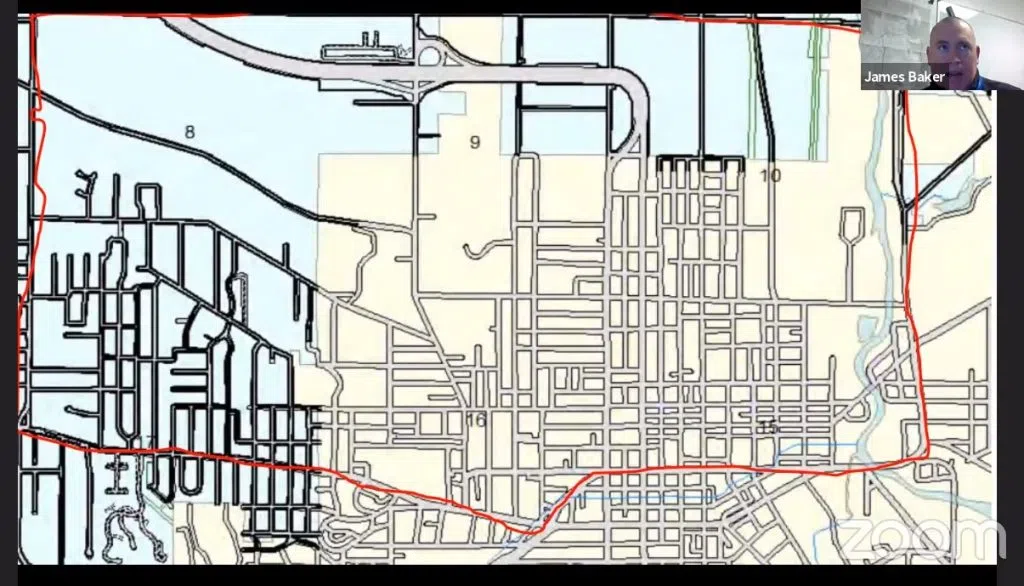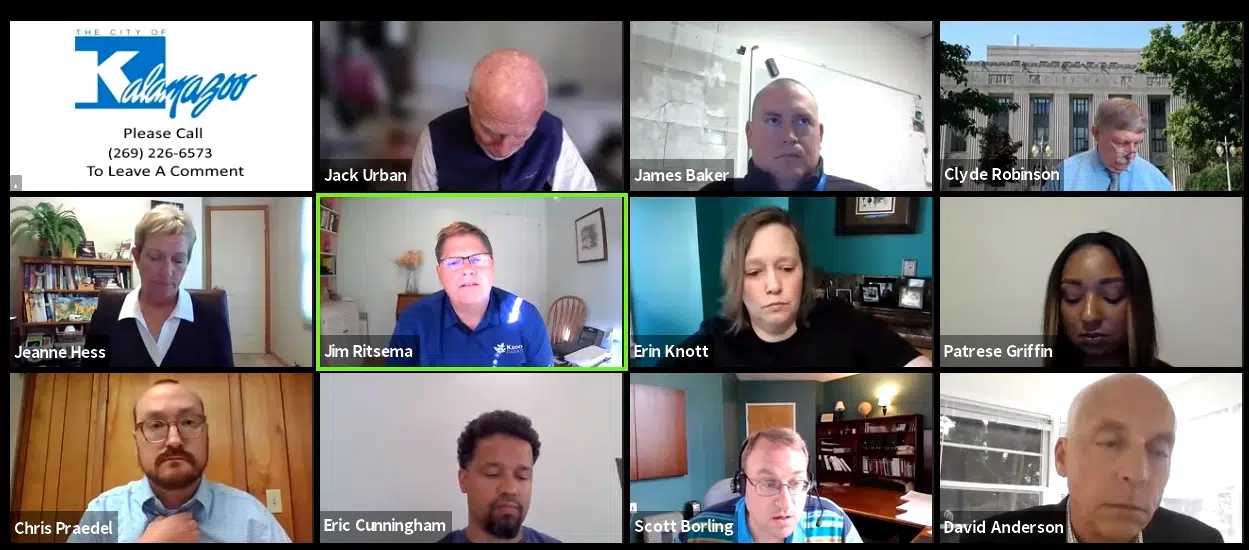KALAMAZOO, MI (WKZO AM/FM) – The City of Kalamazoo has approved a plan to replace lead lines for water in the Northside neighborhood.
During a virtual meeting Monday night, Commissioners discussed the plan at length with Public Services Director James Baker.
According to Baker, the project would use money from the Drinking Water Revolving Loan Fund (DWRF), which administers federal dollars used at the state level by the Michigan Department of Environment, Great Lakes and Energy (EGLE).
“The basis of these loan programs are a low-interest loan and the possibility for principle forgiveness,” Baker said. “The loan mechanism is more beneficial than going out across the standard open-bond market.”
To utilize those funds, EGLE accepts applications as “project plans,” which are then reviewed and scored, and later awarded based on the project ranking. The project plan was already approved by the city in April of this year, and the plan was submitted to EGLE as of April 30.
According to Baker’s presentation, the city will resubmit its finalized plan this month, and EGLE would be expected to approve the plan in August of this year. Construction would begin in June 2022, with an expected completion date of October 2023.
“The City of Kalamazoo has been focused on accelerating lead replacement services since 2017,” Baker said. “From 2017 forward, we’ve committed to 500 replacements per year. We are also doing large-scale projects in large neighborhood areas. We are currently, at this time right now, in the last year of our East Kalamazoo project, which included Eastside Kalamazoo and Eastwood in Kalamazoo Township. We’re moving from the east to the west along the north boundaries of our service area.”
In explaining the need for such a program, Baker said any remaining lead lines in the city are unacceptable.
“When we look across the Kalamazoo system, we’re really looking at copper lines here to stay, and all the lines that are non-copper are going to be replaced and made copper,” Baker said. “Those would include defined lead lines, or galvanized piping or lead that was attached to galvanized piping. At the end of the day, we are looking to get after those lines that are not currently copper.”
Baker said there were alternatives that could be done instead, such as distributing in-home filters, which the city already offers. Anyone in the city can call 311, or (269) 337-8000 for those who live outside the city, to receive one.
However, Baker noted that this is not a long-term solution.
“We wouldn’t expect folks to utilize that filter for the next 25 to 50 years,” Baker said. “We really need to replace these with copper lines, and that is our recommended action.”
In total, the project would replace about 2,000 lead water lines in the Northside area, and would cost about $20 million.

Northside lead water line replacement area in Northside neighborhood. (Photo via City of Kalamazoo YouTube Channel through Zoom meeting).
At this time, there is no projected impact on rates, as they will be figured in 2022 when the project launches.
Residents who would be impacted by this project are advised that they may face up to 12 hours without water, and will be recommended to use a water filter for 30 days following completion of a single residence replacement.
Impacted homeowners will be sent a letter notifying them of the project and identifying the contractors, and a date of work will be scheduled with that contractor.
“Once we award this contract, and we anticipate to do this in May of 2022, we will be sending out a letter to every home in the project area,” Baker said. “That letter will identify who our contractor is, and we will notify residents at that time that our contractor will be scheduling dates. Tags will be placed on the home, giving homeowners instructions to call and schedule a date to do this work. An adult must be present when we’re there to do the work.”
Following Baker’s presentation, Commissioners submitted questions regarding other impacts of the work, such as lawn care. Commissioner Eric Cunningham said that when the pipes had been replaced at the home of his parents, the dugout area grew a sizable amount of weeds.
In cases like that, Cunningham wanted to know if the city would be doing anything to mitigate the growth of weeds should they appear in the dugout area.
“We do come back through and re-seed, we do that as a courtesy to all customers, so that’s something that if it’s coming up as weeds, we will come back and re-seed it,” Baker said. “It’s no different than if you hired a contractor to do work at your home, and part of the scope of that work was to re-establish a lawn. If you paid a contractor to do it, and you were not satisfied with the lawn restoration, I would expect that contractor would honor that work, and I would expect that contractor to come back and re-seed that at no cost to you, and that’s the same thing we’ll do for the residents. If there’s an issue with the seed, just give us a call and we’ll schedule a time to come out.”
Commissioner Erin Knott also had her lead line replaced recently, but experienced some of the same issues. She said there was a dirt patch for several weeks that later sprouted weeds that were about 12 inches tall.
“It’s not an exaggeration, they were knee-high weeds, there’s a few patches of grass,” Knott said. “For someone like myself, it’s not a big deal to go get topsoil and throw down seed, but for the target area, as Commissioner Cunningham said with his parents being a little bit older, it could be a burden.”
Baker reiterated that if the work is not satisfactory, the city will rectify the situation on contact.
Ultimately, the resolution for this upgrade plan was unanimously passed by Commissioners.
The process is now expected to continue in submitting the plan to EGLE before further steps are taken.




Comments